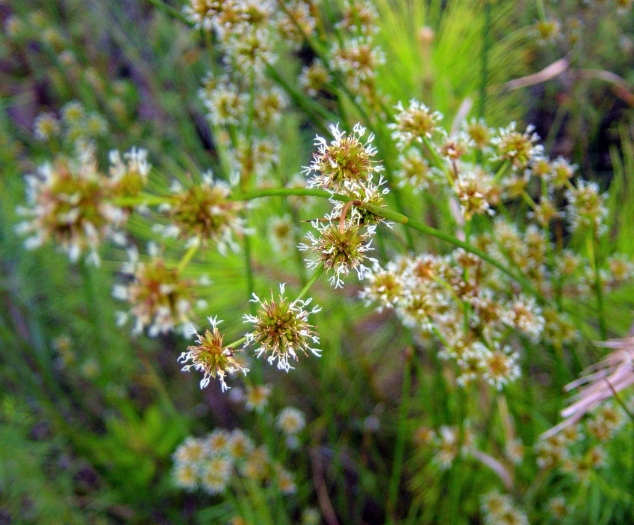Bighead Rush
(Juncus megacephalus)
Bighead Rush (Juncus megacephalus)
/
/

© Patty Mitchum
CC BY 4.0
Image By:
© Patty Mitchum
Recorded By:
Copyright:
CC BY 4.0
Copyright Notice:
Photo by: © Patty Mitchum | License Type: CC BY 4.0 | License URL: http://creativecommons.org/licenses/by/4.0/ | Uploader: pahrkm | Publisher: iNaturalist |

























Estimated Native Range
Summary
Juncus megacephalus, commonly known as bighead rush, is a perennial herb native to coastal plains, freshwater marshes, and wet meadows in the United States, ranging from Texas to Maryland and extending to Massachusetts. It is typically found at elevations below 328 feet (100 meters). This species thrives in moist to wet conditions and is often associated with sandy soils, making it a common sight in sand dunes and disturbed sites near the coast. Bighead rush can reach up to 43 inches (109 cm) in height and is characterized by its erect, cylindrical stems and a distinctive inflorescence that forms a panicle of up to 20 spherical heads, each containing about 50 straw-colored flowers that bloom in the summer months.
Bighead rush is valued for its ability to stabilize soil in wetland restoration projects and is often used in native plant gardens for its unique structural form. It is relatively low-maintenance, requiring consistently moist or wet soil conditions and full sun to part shade. While it spreads via underground rhizomes, it is not typically aggressive or problematic in cultivation. However, it can be sensitive to drought and may require additional watering during prolonged dry periods. Its tolerance for poor drainage and ability to grow in standing water make it suitable for rain gardens and other waterlogged sites.CC BY-SA 4.0
Bighead rush is valued for its ability to stabilize soil in wetland restoration projects and is often used in native plant gardens for its unique structural form. It is relatively low-maintenance, requiring consistently moist or wet soil conditions and full sun to part shade. While it spreads via underground rhizomes, it is not typically aggressive or problematic in cultivation. However, it can be sensitive to drought and may require additional watering during prolonged dry periods. Its tolerance for poor drainage and ability to grow in standing water make it suitable for rain gardens and other waterlogged sites.CC BY-SA 4.0
Plant Description
- Plant Type: Grass
- Height: 1-3 feet
- Width: 1-2 feet
- Growth Rate: Moderate
- Flower Color: N/A
- Flowering Season: Summer
- Leaf Retention: Evergreen
Growth Requirements
- Sun: Part Shade, Full Shade
- Water: High
- Drainage: Standing
Common Uses
Erosion Control, Low Maintenance, Water Garden
Natural Habitat
Native to coastal plains, freshwater marshes, and wet meadows
Other Names
Common Names: Largehead Rush
Scientific Names: , Juncus megacephalus,
GBIF Accepted Name: